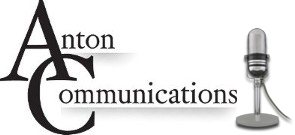The 10 Commandments of a Successful Interview
1. Never take a cold call from a reporter
Even if you know the topic cold and you feel you can handle the questioning, you need time to prepare yourself for the interview; you need to go into battle with a game plan.
2. Be prepared with a message
Research the situation, gather all the facts, develop key message, anticipate tough questions, practice your responses.
3. Don’t lie to the media
Never lie, mislead or manipulate the media. Don’t underestimate a reporter’s ability to find out the truth. You are never their only source of information.
4. Never say “no comment”
This is loaded word that to most people means you’re hiding something. If you plan to comment later, say so. Or politely tell them you are not going to answer that question.
5. Exude honesty and confidence; don’t appear defensive
Good interview preparation will allow you to speak with confidence. Control your emotions so that you neither attack or defend.
6. Show empathy or compassion where appropriate
Particularly in crisis situations, emphasize that your first priority is taking care of the people involved, not pointing fingers or assigning blame.
7. Do not speculate about the motives or opinions of others.
Reporters often do this to bait you into making antagonizing remarks about your adversary or competition. Politely tell reporters to ask them instead.
8. Forget about “off the record”
This is not a legally binding agreement, but a technique the media uses to get sensitive information. The rules aren’t always clear and your protection relies entirely on the integrity of the reporter.
9. Don’t joke or make wisecracks
Saying something in a joking manner never translates well in print, and sometimes not even on camera.
10. Remember, you don’t have to answer every question
If you don’t know, say so: “I don’t know the answer to that, but I’ll try to find out and get back to you.” Then do it. You don’t have to talk about your personal life, pending litigation or competitive information


